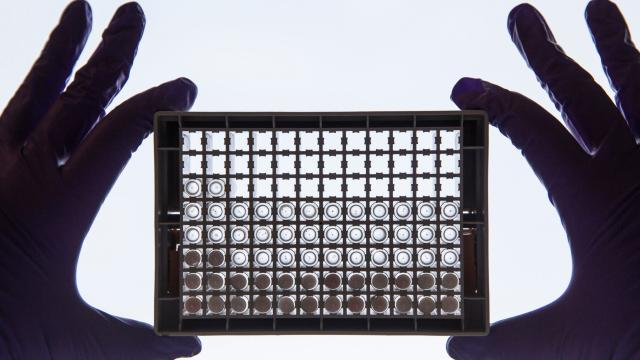The future of cancer treatment might involve personalised vaccines meant to manage or even prevent relapses — at least if new research published Thursday continues to pan out. In a small clinical trial, high-risk melanoma patients given such a vaccine were able to create a long term, durable immune response to their cancer, scientists said. They also remained alive four years after the initial treatment, with most being actively disease-free.
Cancer vaccines have been a highly sought-after goal by scientists for decades. There are two vaccines that can protect against viral illnesses known to raise the risk of certain cancers, HPV and hepatitis B. But developing a broadly effective vaccine that can directly prevent cancer from occurring has been a more difficult task, thanks to the very nature of cancer. For one, cancer cells are mutated versions of the cells found in our body, so our immune system can’t recognise them as an enemy as easily as they can a virus. And because each cancer is specific to each person, it’s not so simple to create a vaccine that works for everyone.
In recent years, though, there have been advances in developing cancer vaccines on a more personalised level. Researchers have discovered that tumours carry proteins on the surface of their cells that aren’t found on normal cells and can make them look different to our immune system. These proteins are called neoantigens. By creating vaccines that train the immune system to better recognise these neoantigens, scientists theorise, we can give our bodies a better chance in fighting off a familiar cancer.
Scientists at the Dana Farber Cancer Institute in Massachusetts and elsewhere have been working on one of these vaccines (called NeoVax) for the skin cancer melanoma as well as glioblastoma, the most common form of brain cancer and one that’s very difficult to treat. While their work has shown that the vaccine is well-tolerated and appears to create an immune response in patients, only short-term results have been available so far. Their new paper, published in Nature Medicine, suggests that their vaccine is working over the long haul, too.
“These neoantigens are the result of mutations found in a specific tumour — it’s something that’s created on an individual level. So our vaccines have to be tailor-made to a patient’s cancer,” study author Patrick Ott said by phone. “But what’s new is that by using genomics and sequencing, we’ve been able to identify these mutations much faster and in a more cost-effective way than before.”
They gave NeoVax to eight patients considered at high risk for future, possibly fatal recurrences of advanced melanoma. Then they tracked their health over the next four years, periodically taking blood samples to study the body’s immune response to the cancer, in particular tumour-specific T cells.
The vaccine was given to the patients about 18 weeks following surgery to remove the tumour. Ott and his team found that volunteers continued to carry T cells specific to the neoantigens their vaccine had trained the immune system to remember. In some people, they also saw T cells that were recognising other neoantigens specific to their tumour. That’s an indication that their immune systems are adapting to any lingering tumour cells in the body by creating even more weapons against them. All eight patients were still alive after nearly four years, with six appearing to be disease-free at last check-in.
Right now, it takes at best three months from a person’s diagnosis for scientists like Ott to create a personalised vaccine. But it’s possible that someday these vaccines could be created in a much shorter time, following a simple doctor’s visit. And though they may not be the “universal” cancer vaccine we’re all hoping for, Ott doesn’t see any reason why these vaccines couldn’t eventually be made to help prevent relapses of any type of cancer.
The vaccines can likely be combined with other treatments. Two patients in the study with cancer that spread elsewhere were given immune checkpoint inhibitors, drugs that allow the immune system to better target tumour cells. In these patients, the group found evidence that tumour-specific T-cells had found their way to the metastasized tumours.
In the future, Ott and his team hope to refine their vaccine technology to create even more potent immune responses that, combined with drugs like immune checkpoint inhibitors, can manage advanced cancer cases. They’re also now testing out their vaccine with other cancers, while continuing to monitor their existing patients.
